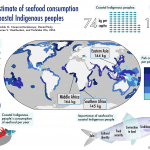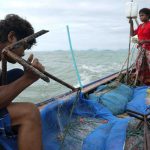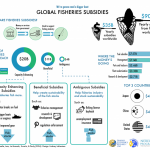As the United Nations Oceans Conference convenes in New York, a new paper calls on marine scientists to focus on social issues such as human rights violations in the seafood industry. Authored by Conservation International, and a team of researchers at leading organizations, including Yoshitaka Ota, Lydia Teh, Andres Cisneros Montemayor and Wilf Swartz from the Nippon Foundation-Nereus Program. The paper is the first integrated approach to meeting this global challenge and will be presented as part of the UN Oceans Conference and the Seafood Summit, which both take place June 5-9 in New York and Seattle, respectively.
The article, published today in the journal Science, is in direct response to investigative reports by the Associated Press, the Guardian, the New York Times and other media outlets that uncovered glaring human rights violations on fishing vessels. The investigations tracked the widespread use of slave labor in Southeast Asia and its role in bringing seafood to American restaurants and supermarkets, chronicling the plight of fishermen tricked and trapped into working 22-hour days, often without pay and while enduring abuse. Subsequent investigations have documented the global extent of these abuses in a wide array of countries.
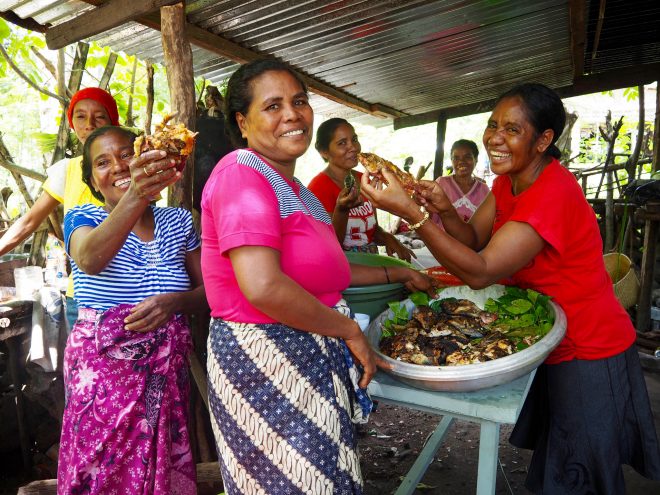
Image: Margarida da Costa, Atauro Island, Timor-Leste. Kate Bevitt, 2016. WorldFish, CC BY-NC-ND 2.0.
“The scientific community has not kept pace with concerns for social issues in the seafood sector,” said Jack Kittinger, CI’s Senior Director, Global Fisheries and Aquaculture and new PI for the Nereus expansion partnership with CI and Arizona State University. “The purpose of this initiative is to ensure that governments, businesses, and nonprofits are working together to improve human rights, equality and food and livelihood security. This is a holistic and comprehensive approach that establishes a global standard to address these social challenges.”
“We are all responsible for producing, consuming and sustaining our food without any pain and suffer of others”, said Yoshi Ota, the Policy Director of the Nippon Foundation Nereus Program. “The issue of human security is severe and under the global environmental change, we must promote our solidarity by caring where our fish comes from”.
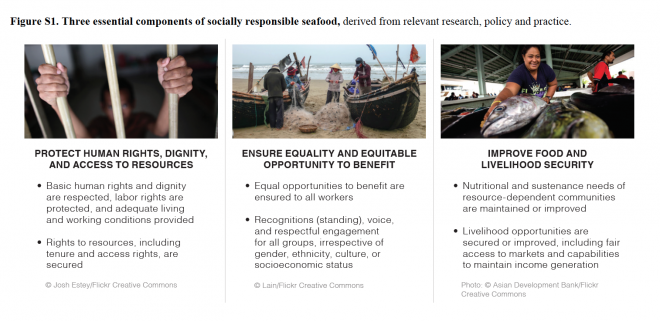
As part of the initiative, Conservation International has organized a volunteer commitment, calling on governments, NGOs, businesses and other organizations to improve social responsibility in the seafood sector. For a list of organizations that have already committed to this call to action, visit: https://oceanconference.un.org/commitments/?id=15143.
The paper identifies three key principles that together establish a global standard for social responsibility in the seafood sector: protecting human rights, dignity and respecting access to resources; ensuring equality and equitable opportunities to benefit; and improving food and livelihood security.
Seafood is the world’s most internationally traded food commodity. By 2030, the oceans will need to supply more than 150 million metric tons of seafood to meet the demands of a growing population. The paper calls on governments, businesses and the scientific community to take measurable steps to ensure seafood is sourced without harm to the environment and people that work in the seafood industry.
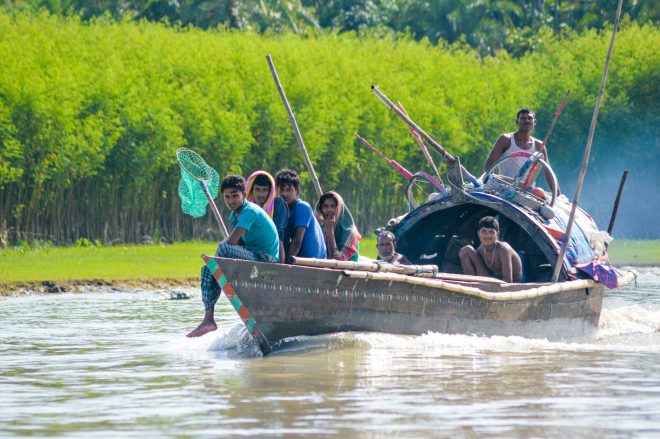
Image: Fishers returning after catch, Bangladesh. Mohammad Mahabubur Rahman, 2016, WorldFish.
About the Nippon Foundation-Nereus Program
The Nereus Program, a collaboration between the Nippon Foundation and the University of British Columbia, has engaged in innovative, interdisciplinary ocean research since its inception in 2011. The program is currently a global partnership of sixteen leading marine science institutes with the aim of undertaking research that advances our comprehensive understandings of the global ocean systems across the natural and social sciences, from oceanography and marine ecology to fisheries economics and impacts on coastal communities. Visit nereusprogram.org for more information.


